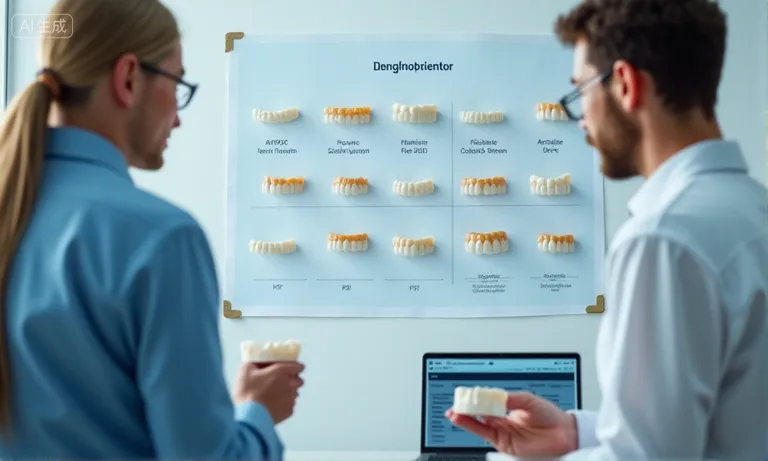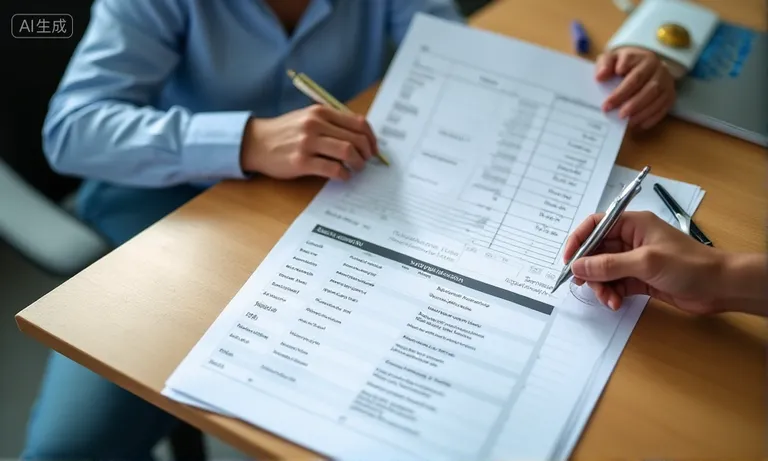Chinese dental implant labs typically deliver crowns and bridges in 5–7 business days, implant cases in 7–10 days, and full-arch restorations in 10–15 days. International shipping via DHL, FedEx, or UPS adds 2–3 days, making these timelines competitive with many domestic suppliers worldwide. Such benchmarks allow procurement teams to align clinical schedules and evaluate lab reliability with greater certainty.
Key factors influencing delivery performance include:
- Turnaround benchmarks: 5–7 days for crowns, 7–10 for implants, 10–15 for full-arch.
- Influencing factors: case complexity, communication speed, QA, and inspection.
- Shipping dynamics: courier efficiency, customs clearance, and tracking visibility.
- Workflow practices: digital file submission, precise documentation, and packaging accuracy.
- Verification methods: SLAs, benchmarking promises, and identifying unrealistic claims.
By understanding these logistics layers, buyers can set realistic expectations, reduce supply chain risks, and secure partnerships with labs that consistently meet global delivery standards. Transparent timelines and well-structured workflows build confidence for long-term collaboration in implant outsourcing.
Why turnaround time and logistics efficiency matter in dental implant outsourcing
Turnaround time and logistics efficiency directly shape clinical planning, procurement stability, and long-term trust in outsourcing partnerships. Buyers evaluating Chinese dental implant labs prioritize predictable delivery schedules because delayed restorations can disrupt treatment timelines, increase hidden costs, and erode confidence in the supplier relationship.
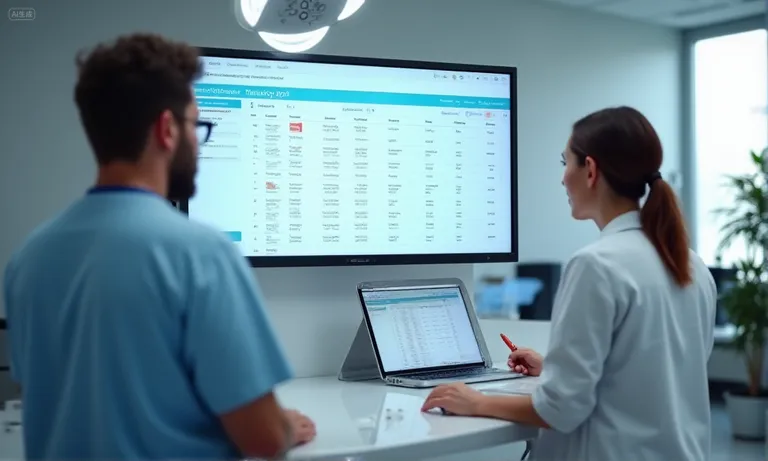
dental-implant-turnaround-logistics
How delivery speed impacts case planning and clinical scheduling
Clinicians depend on timely delivery of crowns, bridges, and implants to match patient appointments. A single week of delay can force rescheduling, extend chair time, and disrupt surgical sequencing. Predictable turnaround allows practices to confidently plan surgeries, provisional fittings, and final placements without unexpected gaps.
Why logistics efficiency reduces procurement risks and hidden costs
Efficient shipping and documentation processes prevent unexpected customs fees, rework due to damaged packaging, or delays from incomplete paperwork. When a lab consistently delivers on time with correct case labeling, procurement teams avoid hidden costs such as last-minute local outsourcing or compensation for delayed treatments.
The role of reliable timelines in building long-term supplier relationships
Turnaround is not only about speed but also about consistency. Buyers who experience steady delivery performance are more likely to view the lab as a strategic partner rather than a transactional vendor. Over time, predictable timelines reduce the need for buffer stock, streamline budgeting, and strengthen mutual trust between clinic and lab.
What is the typical turnaround time for dental implant cases from Chinese labs
The typical turnaround time from Chinese dental labs ranges from 5 to 15 business days plus 2–5 days for international shipping, depending on the complexity of the case. Simple crowns and bridges are usually ready within one week, while full-arch restorations take longer due to design and verification steps.

chinese-dental-lab-turnaround-benchmarks
Crowns and bridges: 5–7 business days + 2–3 days shipping
Most single-unit crowns and bridges can be completed within one working week. When combined with express courier services such as DHL or FedEx, clinics typically receive the final restorations in under 10 calendar days.
Implant cases (single & multiple units): 7–10 business days + shipping
Implant abutments and multi-unit cases require more design coordination, especially when CAD approval is needed. The additional steps usually extend production to about 7–10 business days before shipping.
Full-arch restorations: 10–15 business days + shipping
Complex implant restorations, such as full-arch prosthetics, take the longest due to multiple quality checks, try-ins, and potential design revisions. Including international shipping, buyers should expect a total timeline closer to 3 weeks from case submission to chairside delivery.
For more detail, procurement teams can refer to Dental Economics on outsourcing efficiency as a benchmark reference.
What factors influence turnaround time
Turnaround times vary widely because every dental implant case carries different levels of complexity, communication needs, and quality assurance requirements. Buyers evaluating Chinese labs should understand these factors to set realistic expectations and avoid unnecessary delays.
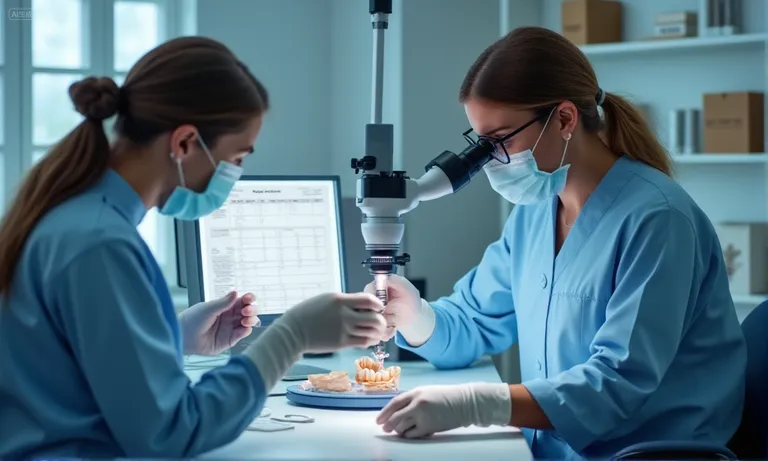
dental-implant-case-factors-turnaround
Case complexity and need for multiple try-ins
Single-unit restorations are straightforward, while multi-unit or full-arch implant cases demand more design iterations and precision milling. Complex cases often require try-ins, provisional stages, or extra verifications that extend production by several days.
Communication and timely design approval
Delays frequently occur when digital scans or CAD designs are not approved quickly. Efficient labs streamline this step with online portals, structured feedback forms, and dedicated account managers, helping buyers reduce wasted time between design submission and approval.
Lab efficiency, QA checks, and pre-shipping inspection
A lab’s internal workflow directly affects turnaround. Well-structured production lines, CAD/CAM automation, and layered quality assurance ensure restorations are ready on schedule. Pre-shipping inspections add one more safeguard, but without efficient systems, they can also add bottlenecks to delivery timelines.
For practical context, see Inside Dental Technology on lab workflow efficiency, which outlines how operational structure impacts production speed.
How international shipping and customs affect delivery speed
International shipping for dental implant cases from China typically takes 2–5 business days with express couriers, but customs clearance and documentation accuracy can significantly impact the final delivery timeline. Buyers should plan for both courier speed and regulatory checks when estimating case arrival.
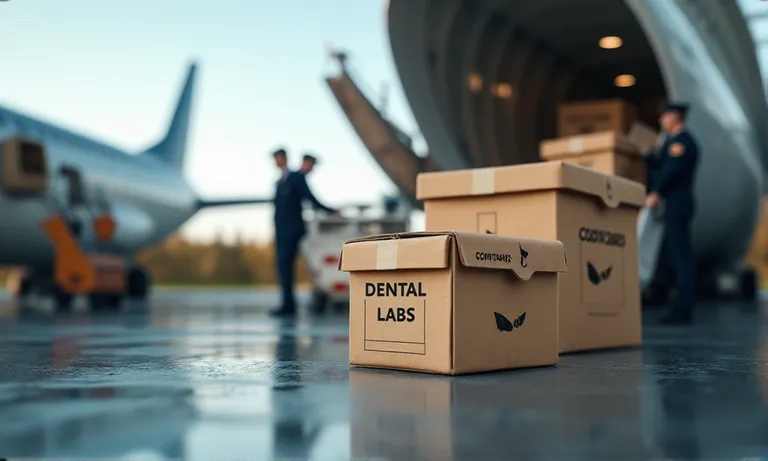
dental-implant-shipping-customs
Typical transit times with DHL, FedEx, UPS and other couriers
Express couriers such as DHL, FedEx, and UPS usually deliver within 2–3 business days to the U.S., EU, and Australia, while shipments to remote areas may take 4–5 business days. Transit speed is generally reliable, but it does not account for clearance delays.
Customs clearance challenges and required documentation
Customs is the most unpredictable factor in international delivery. Missing or incomplete documents—such as invoices, product descriptions, or certificates of conformity—can hold shipments for several days. Experienced labs prepare proper paperwork upfront to reduce clearance risks.
Real-time shipment tracking for buyers
Most express services provide real-time tracking that allows procurement teams to monitor progress. Tracking helps identify potential clearance bottlenecks early, enabling buyers to adjust patient scheduling if shipments are delayed. Reliable labs also share tracking information proactively to keep clients updated.
What logistics practices improve efficiency in implant case delivery
Efficient logistics are the backbone of predictable turnaround in dental implant outsourcing. Buyers benefit most when labs combine digital submission systems, standardized documentation, and proactive coordination, reducing both time loss and hidden risks.

dental-implant-logistics-efficiency
Digital case submission with intraoral scans and CAD/CAM files
Submitting cases digitally saves 1–2 days by eliminating physical impressions and accelerating design approval. Common practices include:
- Uploading intraoral scans directly through secure lab portals
- Sharing STL files compatible with CAD/CAM workflows
- Using cloud-based case management tools for instant confirmation
Labs that standardize digital intake reduce back-and-forth communication and ensure faster entry into production.
Accurate packaging, labeling, and documentation for each case
Errors in packaging or paperwork often cause customs delays. Efficient labs create structured documentation packs:
| Item | Purpose | Risk if Missing/Incorrect |
|---|---|---|
| Commercial invoice | Declares shipment value for customs | Clearance delay |
| Material Safety Data Sheet | Confirms biocompatibility and material safety | Shipment rejection |
| Lot/Batch number on packaging | Enables product traceability | Compliance risk |
| Conformity declaration | Confirms regulatory alignment | Regulatory hold |
Such preparation minimizes clearance risks and reassures buyers of consistent traceability.
Coordinated communication for urgent or complex implant cases
Some implant cases require expedited delivery or involve multiple units across different stages. When this happens, coordination becomes critical. Reliable labs assign dedicated logistics contacts who confirm shipping windows, update clients in real time, and adjust production schedules if urgent requests arise. This partnership approach transforms logistics from a hidden bottleneck into a value-added service.
How buyers can evaluate and verify a lab’s delivery reliability
Verifying delivery reliability is a crucial step in procurement. Labs may promise fast turnaround, but only those with documented commitments, measurable benchmarks, and transparent records consistently meet buyer expectations.

dental-lab-delivery-reliability-check
What service-level agreements (SLAs) to request from suppliers
Buyers should request SLAs that cover:
- Standard turnaround times for crowns, bridges, and implant cases
- Expedited case handling policies for urgent clinical needs
- Logistics guarantees including courier partnerships and customs support
- Communication protocols for status updates and escalation
Clear SLAs create accountability and give procurement teams leverage if delays occur.
How to benchmark lab turnaround promises against industry averages
Industry benchmarks provide context to judge lab performance.
| Case Type | Industry Average Turnaround (excl. shipping) | Red Flag if Claimed Faster |
|---|---|---|
| Crowns & Bridges | 5–7 business days | <3 days |
| Single/Multiple Implants | 7–10 business days | <5 days |
| Full-Arch Restorations | 10–15 business days | <7 days |
Labs consistently delivering below these ranges without digital integration or special facilities may be overstating their capacity.
Common red flags in compliance claims
Procurement managers should remain cautious of vague or exaggerated promises. Warning signs include inconsistent communication, lack of documented case records, and unwillingness to share courier tracking or audit results. Reliable partners openly provide documentation, making evaluation straightforward.
For practical evaluation frameworks, see Procurement Leaders’ supplier performance guide, which outlines methods for benchmarking supplier commitments.
Conclusion
Turnaround time and logistics efficiency define the reliability of global dental implant outsourcing. Buyers who assess case complexity, shipping pathways, and lab coordination practices can better predict delivery outcomes and reduce hidden risks. Clear SLAs, benchmarking against industry norms, and proactive logistics planning further safeguard procurement decisions.
As an overseas dental lab, we recognize that trust is earned through transparent timelines, consistent communication, and a proven record of on-time delivery. By aligning digital workflows with structured logistics, buyers can secure dependable supply chains that support clinical planning, reduce chairside stress, and build confidence in long-term partnerships.
